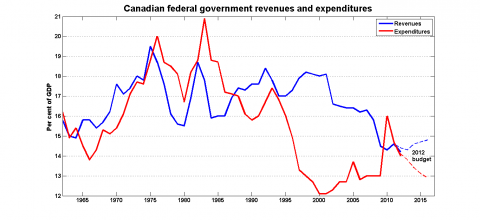Of all the topics you might try to romanticize, taxation would certainly be at the bottom of the list:
In the debate over avoiding the “fiscal cliff” — especially over whose taxes should and shouldn’t be raised — I detect an annoying attempt to romanticize taxation. I read this as an act of desperation on the part of those who want higher taxes on the wealthy, for there is nothing romantic about taxation.
The other day MSNBC’s Chris Hayes invoked Franklin Roosevelt in support of higher taxes on the top 2 percent. Pulling out all the stops, Hayes quoted from one of FDR’s October 1936 campaign speeches […]
Roosevelt’s claim that we can judge the social conscience of the government by how it collects taxes is true in a way he could not have imagined. Contrary to FDR and Justice Holmes, taxes are neither a price (in the voluntary-transaction sense) nor club dues. On the contrary, they are exactions by threat of violence. Some social conscience! How ironic that organized society and civilization itself are said to depend on the government’s threatening peaceful people if they fail to surrender their property as demanded by politicians who presumptuously and self-servingly claim to “represent” all the people.
Far from some enlightened institution, taxation began when conquerors realized that formal and continuing appropriation of a subject population’s wealth was preferable to hit-and-run pillaging. For this to work, however, the rulers needed to convince the peasants that the regime would protect them from predators in return for their regular remittances. That’s right: It was a protection racket, from which the racketeers and their cronies profited handsomely. For the taxpayers, there was little choice in the matter. They weren’t buying protection as people buy insurance in the market, and they weren’t paying dues as they would later pay dues to mutual-aid societies. They paid or they were punished. The ideology of benevolent state protection reduced enforcement costs because the ruled outnumbered the rulers and widespread tax resistance would have doomed the regime. Things have changed little in our time.




